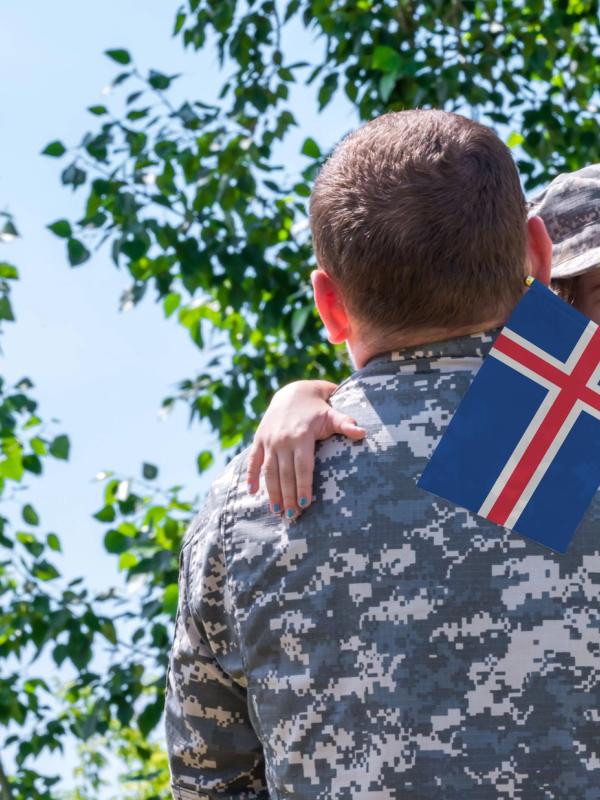
Guardians of Peace: Iceland's Approach to Military
Nestled in the North Atlantic, Iceland’s unique defense situation has long piqued the curiosity of those interested in international relations and security. With no standing army, many wonder, “does Iceland have a military?” How does this small island nation protect itself and contribute to global peacekeeping efforts? In this blog post, we delve into the intricacies of Iceland’s defense strategy, uncovering the crucial role of international cooperation, its relationship with NATO, and the various forces that safeguard this fascinating country. Prepare to embark on a journey through Iceland’s defense landscape, from its historical context to its evolving future.
Key Takeaways
- Iceland has a unique defense strategy characterized by its lack of a standing army and reliance on international cooperation.
- Iceland’s actual defense capabilities include the Icelandic Coast Guard, Armed Police Unit, and Peacekeeping Force.
- The nation must remain proactive in assessing changing geopolitical landscape to ensure security while balancing national interests with international obligations.
Iceland's Unique Defense Situation
Iceland’s defense situation stands apart from most nations due to its small population, high costs, and historical context of neutrality. While Iceland does not possess a standing army, it boasts an Icelandic Coast Guard responsible for patrolling its waters and overseeing its airspace.
Furthermore, foreign affairs play a significant role in Iceland’s defense strategy, with international cooperation and non-military measures taking precedence. Understanding this unique defense approach requires an in-depth examination of the factors leading to Iceland’s lack of a standing army and its commitment to neutrality.
Small population and high costs
The primary factors preventing Iceland from having a standing army are its small population size and the high associated costs. With limited resources, Iceland focuses on bilateral defense agreements and international cooperation to ensure its security and defense capabilities.
This approach allows Iceland to prioritize its defense needs without the burden of sustaining a large military force. Consequently, the nation’s strategic location played a significant role in its defense strategy during the Cold War.
Historical context and neutrality
Since 1945, Iceland has maintained a policy of neutrality, allowing the nation to:
- remain independent and free from external influence
- preserve its sovereignty and autonomy
- facilitate cooperation with other states on an equitable basis.
Neutrality, however, restricts Iceland’s capacity to engage in military operations, as it is not authorized to take a stance in disputes between other countries. As a result, Iceland relies on international support for its defense, with the Icelandic Coast Guard and NATO allies monitoring its airspace.
Iceland's Actual Defense Capabilities
Despite not having a standing army, Iceland has defense capabilities through its Icelandic Coast Guard, armed police unit, and peacekeeping force. These forces play crucial roles in ensuring Iceland’s security and maintaining law and order within the nation.
Subsequent sections will detail the responsibilities and capabilities of each of these forces.
Icelandic Coast Guard
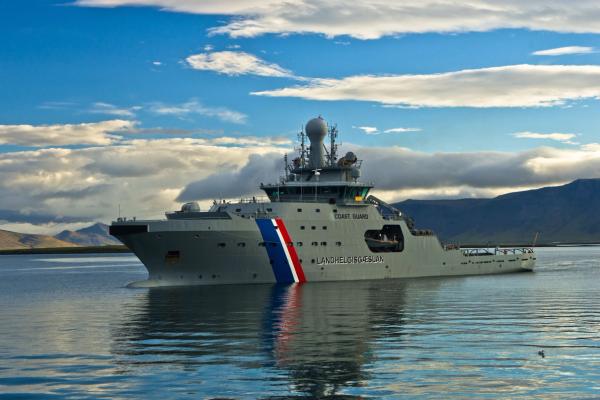
The Icelandic Coast Guard, a division of the Icelandic Ministry of Justice, is responsible for providing maritime safety, search and rescue operations, and law enforcement in Icelandic waters. To fulfill its duties, the Coast Guard utilizes small arms, naval artillery, and air defense radar stations.
In addition to patrolling Icelandic waters, the Coast Guard collaborates with NATO to modernize its facilities, ensuring its capabilities remain up-to-date and effective.
Armed Police Unit
The Icelandic Armed Police Unit is a specialized unit of the Icelandic National Police, tasked with responding to serious incidents and providing security for high-risk operations. This unit serves as the counterpart of the US SWAT team in Iceland, offering immediate armed support to other police units when necessary.
By maintaining a well-trained and capable armed police force, Iceland can effectively address security threats without the need for a standing army.
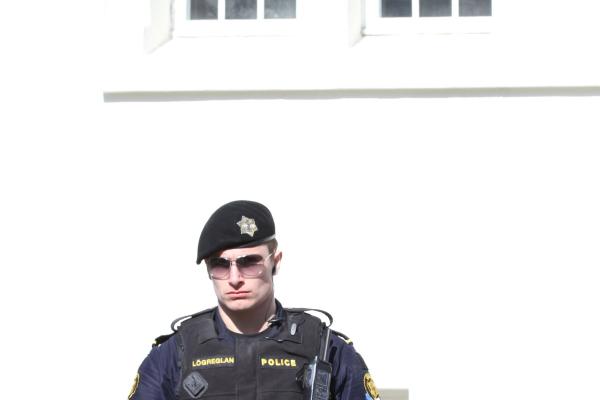
Peacekeeping Force
The Icelandic Peacekeeping Force is a volunteer organization offering humanitarian assistance and peacekeeping operations in areas of conflict worldwide. All members of this force receive basic infantry combat training, ensuring they are well-prepared for their missions.
Through its participation in international peacekeeping efforts, Iceland demonstrates its commitment to global peace and security, despite its lack of a standing military.
Iceland's Relationship with NATO
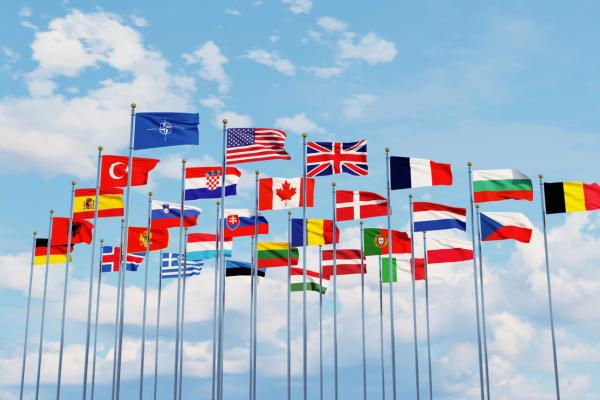
As a founding member of the North Atlantic Treaty Organization (NATO), Iceland maintains a strong partnership with the alliance. Although Iceland does not have a standing military, it is a valuable member of NATO, based on its shared values and commitment to unity.
However, the country’s membership in the alliance isn’t universally supported. Subsequent sections will delve into NATO’s obligations towards Iceland, Icelandic contributions to the alliance, and the opposition to its membership.
NATO obligations towards Iceland
NATO’s commitments to Iceland involve permitting NATO Allies to station troops on the island and utilizing the Icelandic Coast Guard for support. As the only NATO Ally without a standing military force, Iceland’s security is ensured through international cooperation and affiliation with organizations such as NATO.
By working closely with NATO, Iceland receives the necessary support and protection from its allies, while also contributing to the collective defense of the alliance.
Icelandic contributions to NATO
While Iceland does not have a standing military, it contributes to NATO through financial support and the provision of civilian personnel for alliance operations. By actively participating in joint exercises and training with other NATO countries, Iceland plays a crucial role in maintaining the alliance’s effectiveness and cohesiveness.
This collaborative approach enables Iceland to fulfill its NATO obligations while remaining true to its commitment to neutrality.
Opposition to NATO membership in Iceland
Despite the benefits of NATO membership, there is opposition within Iceland, with some arguing that it would compromise the country’s neutrality and result in increased militarization. The Socialist Party, in particular, opposed NATO membership on the grounds that it would jeopardize Iceland’s neutrality and lead to an increased military presence in the nation.
This opposition, led by the prime minister, highlights the ongoing debate within Iceland regarding the balance between maintaining neutrality and participating in international alliances for its security.
Bilateral Defense Agreements
In addition to its membership in NATO, Iceland has bilateral defense agreements, such as the Naval Air Station Keflavik and the Joint Understanding on Security Cooperation. These agreements play a significant role in Iceland’s defense strategy, providing additional support and collaboration with its allies.
Subsequent sections will delve into the specifics of these agreements and their impact on Iceland’s defense capabilities.
Naval Air Station Keflavik
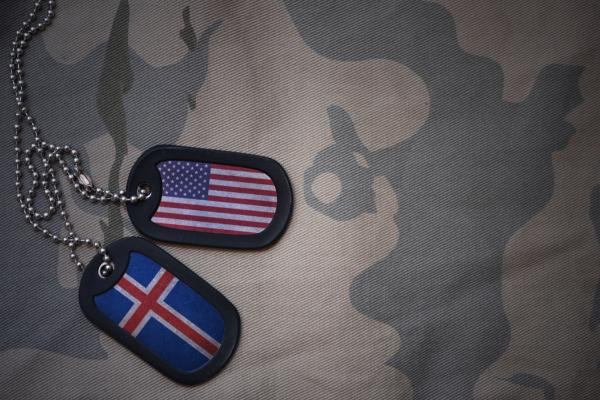
The Naval Air Station Keflavik, a former US military base in Iceland, was constructed by the US and opened in 1943. The base was transferred to the country’s navy in 1961 and officially closed in 2006.
The 1951 bilateral defence agreement between the US and Iceland stipulated that the USA would make arrangements for the defense of Iceland on behalf of NATO and grant base rights, thus ensuring mutual security.
With the closure of the base, a formal agreement was established to outline the conditions of the closure and to ensure the security of Iceland and the North Atlantic region through future cooperation.
Joint Understanding on Security Cooperation
The Joint Understanding on Security Cooperation is a document that outlines joint doctrine to guide the activities and performance of the Armed Forces of the United States in joint operations and military cooperation. This agreement provides guidelines for military interaction with:
- governmental organizations
- nongovernmental organizations
- multinational forces
- other interorganizational partners
By outlining protocols for the Armed Forces of the United States in joint operations, this agreement has significant implications for how the Armed Forces interact with other entities and nations, ensuring successful operations and collaboration, while also contributing to arms control efforts.
The Role of International Cooperation in Iceland's Defense
International cooperation plays a significant role in Iceland’s defense, as the nation relies on alliances and partnerships to ensure its security. Involvement in the North Atlantic Region and the United Nations are key aspects of Iceland’s international cooperation efforts.
Subsequent sections will delve into Iceland’s involvement in these organizations and their impact on the country’s defense strategy.
North Atlantic Region
Iceland is a committed member of the North Atlantic Region, a regional security organization that strives to foster peace and stability in the region. Additionally, Iceland is a part of the North Atlantic Treaty Organization (NATO), which provides collective defense and security for its members.
As a member of these organizations, Iceland serves as a strategic outpost in the North Atlantic and provides facilities for NATO air-surveillance missions, safeguarding the North Atlantic sea lines of communication and monitoring Iceland’s air space.
United Nations involvement
As a member of the United Nations, Iceland participates in its peacekeeping operations, contributing to global peace and stability. In addition to peacekeeping efforts, Iceland contributes to the United Nations’ initiatives to combat human trafficking and other security issues.
By actively participating in these international organizations, Iceland demonstrates its commitment to addressing global security concerns and promoting a safer world.
Human trafficking and other security concerns
While there is no direct connection between human trafficking and Iceland’s defense, the Icelandic government has taken measures to address the issue. Icelandic law permits foreign trafficking victims to obtain residence permits, and the government has reported that potential trafficking victims have been incarcerated for unlawful acts committed as a result of being trafficked.
These initiatives have a positive effect on the security and well-being of the country, highlighting the importance of addressing a range of security concerns in Iceland’s defense strategy.
Military Exercises and Training in Icelandic Territory
Military exercises and training in Icelandic territory involve the US Bomber Task Force mission, German air squadron exercises, and agile strength training. These activities play a vital role in maintaining Iceland’s defense capabilities and fostering cooperation with its allies.
Subsequent sections will delve into the details of these exercises and their significance to Iceland’s defense strategy.
US Bomber Task Force mission
The US Bomber Task Force mission in Iceland aims to facilitate training with allied countries and demonstrate the capability to carry out global strike operations from any location, at any time. This mission falls under the US European Command (USEUCOM) and supports its security mandates across the European continent.
By participating in this mission, Iceland bolsters its defense capabilities and contributes to the strength and unity of its NATO allies.
German air squadron exercises
The German air squadron in Iceland participates in the Rapid Viking exercise and conducts training missions with NATO in Icelandic airspace. The objective of this deployment is to illustrate Germany’s preparedness and capacity to expeditiously deploy an air power capability with minimal structures to any location they are required.
By hosting these exercises, Iceland strengthens its defense capabilities and fosters cooperation with its NATO allies.
Agile strength training
Agile Combat Employment (ACE) is a concept that facilitates the production of strategic airpower from networks of small bases and dispersed locations. While there is no available information on agile strength training in Iceland, the concept of ACE highlights the importance of flexibility and adaptability in modern defense strategies.
Iceland’s commitment to hosting military exercises and training with its allies demonstrates its dedication to maintaining a strong defense posture.
The Future of Iceland's Defense Strategy
The future of Iceland’s defense strategy will be influenced by the evolving geopolitical landscape, balancing national interests and international obligations, and public opinion on defense matters. As the world continues to change, Iceland must remain proactive in addressing new risks and opportunities to safeguard its interests and ensure its security.
Subsequent sections will delve into these factors and their potential impact on Iceland’s defense strategy.
Evolving geopolitical landscape
The geopolitical landscape is continually evolving, presenting both new risks and opportunities for Iceland’s defense. Since gaining sovereignty, Iceland has effectively implemented its security and defense policy through collaboration with its closest allies.
As the geopolitical landscape changes, Iceland must continue to engage in dialogue and cooperation with neighboring states and adapt its defense strategy to meet new challenges and opportunities.
Balancing national interests and international obligations
Iceland strives to maintain equilibrium between its national interests and international obligations through involvement in cooperative security initiatives, such as joint exercises and training with other countries, and participation in international organizations like NATO and the United Nations.
By striking a balance between its national interests and international obligations, Iceland can effectively safeguard its security while honoring its commitments to global peace and stability.
Public opinion on defense matters
Public opinion is highly important in Iceland’s defense policies and decisions, with the majority of citizens holding the view that Iceland should remain neutral and not join any military alliances. Despite this, the general consensus in Iceland is in favor of sustaining membership in NATO and fostering favorable relations with the United States.
As Iceland continues to adapt its defense strategy, public sentiment will play a crucial role in shaping the nation’s approach to security and international cooperation.
Summary
In conclusion, Iceland’s unique defense situation demonstrates the power of international cooperation and strategic partnerships in maintaining a nation’s security. Despite not having a standing army, Iceland effectively safeguards its interests and contributes to global peacekeeping efforts through its Coast Guard, armed police unit, peacekeeping force, NATO membership, and bilateral defense agreements. As the world continues to evolve, Iceland must remain proactive and adaptable in its defense strategy, striking a balance between national interests and international obligations while respecting public opinion on defense matters. In doing so, Iceland stands as a testament to the value of unity and collaboration in the pursuit of peace and security.
